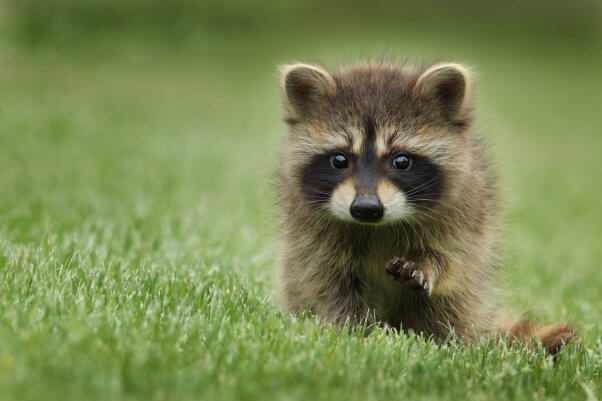With summer in full swing, warm temperatures sometimes bring close encounters with our animal neighbors. Homeowners in the U.S. spend nearly $5 billion a year on pesticides in a vain attempt to create homes that are free of “pests.” Not only are these substances toxic to children and companion animals, they also provide only a short-term solution.

Here are some tips for peacefully coexisting with wildlife:
- Keep trash cans securely covered and in the garage until trash day, or pour ammonia or pepper in them to discourage foraging.
- To keep ants out, wash kitchen surfaces with equal parts vinegar and water and pour a line of cream of tartar, red chili powder, paprika, or dried peppermint where ants enter the house.
- Keep raccoons and other animals out of attics by trimming tree limbs and plants away from roofs and foundation walls.
- To avoid contact with wasps, never work in the yard or garden wearing yellow or white, since these colors attract insects. Many insects cannot see red, making it a good color to wear when working in the yard.
- Persuade any raccoons who take up residence in your attic to pack up and move to quieter surroundings by turning on a light and playing a portable radio for a day or two.
- Save frogs and other animals from drowning in swimming pools with a Frog Saver Lily Pad (available at PETAMall.com) or by dangling a knotted rope over the pool’s edge.
- Cockroaches are incredible survivors—and they’re very opportunistic. Seal food in airtight containers and take away hiding places for roaches, then place bay leaves, garlic, or catnip around your home to repel them.
- Stay mosquito-bite–free by eating brewer’s yeast or B-complex vitamins daily, and make an effective skin repellent by diluting oil of citronella or oil of pennyroyal mint with vodka or vegetable oil.
- Deter rodents from places that can’t be mouse- or rat-proofed (such as vehicle engines) with a mixture of salad oil, garlic, horseradish, and cayenne pepper. Let this sit for four days, then strain it into a spray bottle and spray it on the desired area. Moth balls and peppermint oil-soaked cotton balls also work well.
- Observe wildlife from a safe distance—never touch, get close to, feed, or pick up wild animals.
For more tips on living with wildlife all year round, pick up Making Kind Choices by PETA President Ingrid Newkirk.
Text VEG to 73822 to get the latest vegan lifestyle tips, recipes, and urgent action alerts texted right to your phone.
Terms for automated texts/calls from PETA: https://peta.vg/txt. Text STOP to end, HELP for more info. Msg/data rates may apply. U.S. only.







